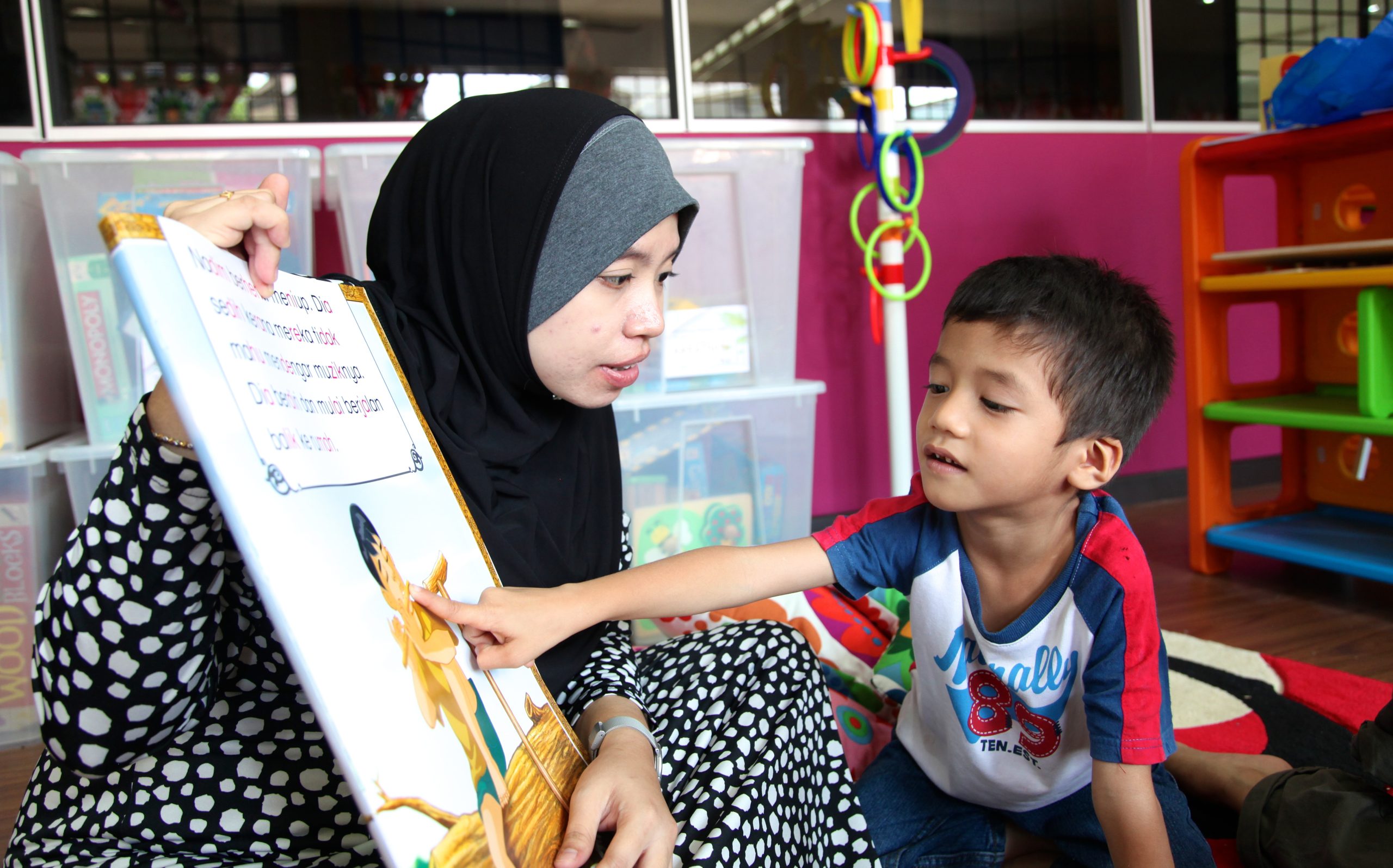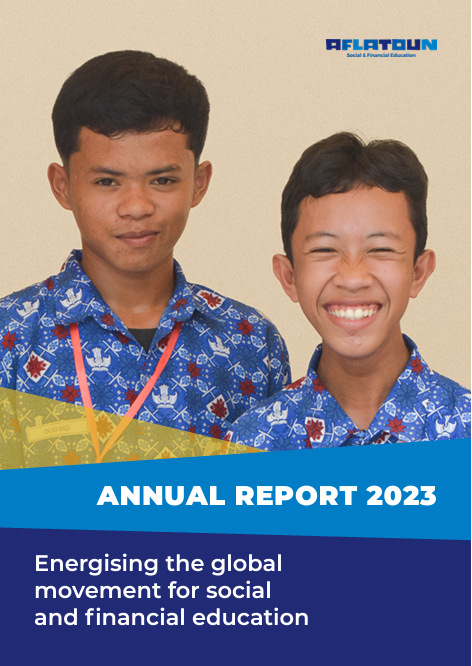National Integration of AflaTot in Indonesia
In October 2017, Aflatoun International and the Director General of Early Childhood Education and Community Education, from the Ministry of Education and Culture of Indonesia decided to work together to integrate Social and Financial Education into their national curricula, targeting Early Childhood Education programmes. A Memorandum of Agreement was therefore signed with the objective to work together to develop and implement social and financial education across the country.
The first phase saw different elements that needed achieved:
Develop Social and Financial Education modules
tailored to the developmental stages of early childhood and the specific characteristics of their environment.
Develop teaching guidelines
to integrate social and financial education components into learning activities for teachers of Early Childhood Education.
Organise the pilot training
for Early Childhood Education and Community Education educators and implement social and financial education modules to learners.
Conduct monitoring and evaluation
baseline surveys to assess the knowledge, habits and initial findings before the programme is implemented.

The Director General of Early Childhood Education and Community Education oversaw the contextualisation of the social and financial Early Childhood curriculum, creating teaching guidelines, planning and organising trainings, allocating funding for the pilot phase, and conducting monitoring and evaluation. Additionally, they coordinated the broader implementation of the programme.
Aflatoun International contributed by providing AflaTot, the standard social and financial curriculum for Early Childhood Education, offering access to digital copies of the programme, and delivering technical assistance for curriculum contextualisation, trainings, and monitoring and evaluation efforts.
The Indonesian Early Childhood Education Curriculum
Prior to collaborating with Aflatoun and integrating AflaTot into the national curriculum, Indonesia used the National Early Childhood Education Curriculum, developed in 2013.
This curriculum aimed to prepare young children for primary school and consisted of six development areas, four core competences and 46 sub-competencies.
The six development areas included in the 2013 ECE curriculum were:
-
Religious and moral values development The development of good behaviour stemming from Indonesian religious and moral values and sourced from social life in the context of play.
-
Physical-motor development Development of kinesthetic maturity in the context of play.
-
Cognitive development developing a thinking process in the context of play.
-
Social emotional development development of sensitivity, attitudes, and social skills and emotions in the context of play. In particular, it focuses on self awareness, sense of reposnibility for self and others, and pro-social behaviour that is the ability to play with peers, share, understand feelings, respect rights and other people's opinions, being cooperative, tolerant, and polite.
-
Language development
-
Artistic development development of exploration, expression and appreciation of art in the context of play.
The integration of AflaTot
When comparing AflaTot to the Indonesian ECE curriculum, we see that it provides input in the same developmental areas:
In Indonesia, the Ministry of Education and Culture (MoEC) decided to integrate the AflaTot programme by into the 2013 national Early Childhood Education (ECE) curriculum.
In this case, this involved aligning the AflaTot curriculum with the competencies outlined in the national ECE framework. The team in West Java found that the AflaTot learning activities supported and enhanced the development of 44 out of the 46 sub-competencies.
According to MoEC, social and financial education plays a crucial role in developing key ECE competencies. While the AflaTot program has the potential to be fully infused into the national curriculum, it currently operates as a separate stand-alone learning programme that aids teachers in delivering social and financial education to children aged 5-6.
In partnership with:












